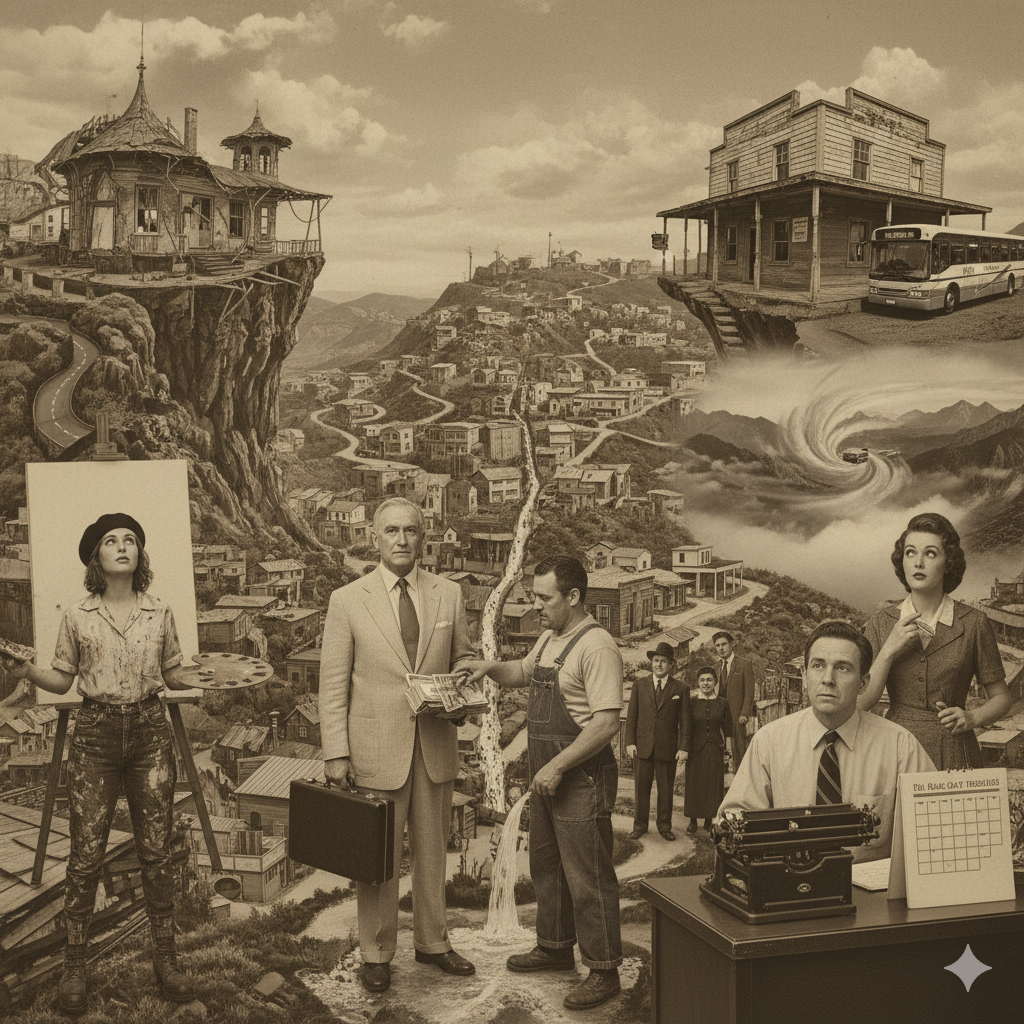Last updated on October 29, 2025
If you have read this far and are still entertaining the notion of moving to Bisbee, then this final chapter is not about the town; it’s about you. The problems with Bisbee are objective and quantifiable—failing infrastructure, a dead economy, environmental toxins. But your desire to overlook these red flags is subjective and psychological. You are not seeing a town; you are seeing a solution to a problem in your own life, and you are projecting that solution onto a deeply flawed canvas.
Let’s be frank about the personality types who are most susceptible to the Bisbee myth. First is The Romantic Artist, who believes that geographic relocation is a substitute for discipline and inspiration. You imagine that the quirky surroundings will magically unlock your dormant creative genius. The reality is that inspiration doesn’t pay the bills, and the profound isolation and lack of new stimuli are more likely to lead to creative stagnation than a breakthrough. You don’t need a new town; you need a new work ethic.
Next is The Equity Refugee, who has cashed out of an overpriced urban market and arrives in Bisbee with a pile of money and a sense of superiority. You believe your big-city cash makes you a king in this small pond. You will quickly learn that your money cannot buy you a reliable internet connection, a competent plumber, or social acceptance. You will be seen as an invader, a harbinger of the gentrification that prices out the locals, and you will trade your urban annoyances for a set of rural problems you are completely unequipped to handle.
Then there is The Burned-Out Professional, desperate to escape the “rat race.” You dream of a simpler, slower life, free from deadlines and corporate pressure. But a lack of structure is not a cure for burnout; it is a recipe for aimlessness and existential dread. The problems you faced in your career will follow you, because they are part of you. You cannot escape your own ambition, or lack thereof, by moving to a town with none of its own. Bisbee is not a therapy session; it’s just a place with bad jobs.
Finally, there is The Nostalgist, who is chasing a fantasy of a “simpler time.” You are enamored with the historic buildings and the lack of modern commercialism. But you are forgetting that the past was not simpler; it was harder, dirtier, and more dangerous. You are falling for a theme-park version of history, curated for tourists. You don’t want to live in the past; you want to visit it for a weekend. To confuse the two is a catastrophic error.
Moving to Bisbee will not solve your problems. It will only distract you from them for a short time, before presenting you with a host of new, more intractable ones. The allure of the town is a projection of your own desires for escape, for reinvention, for a life that is more authentic and meaningful. But a place cannot give you these things. Only you can. And you are far more likely to build that life in a place that has a functioning economy, safe drinking water, and a future.
